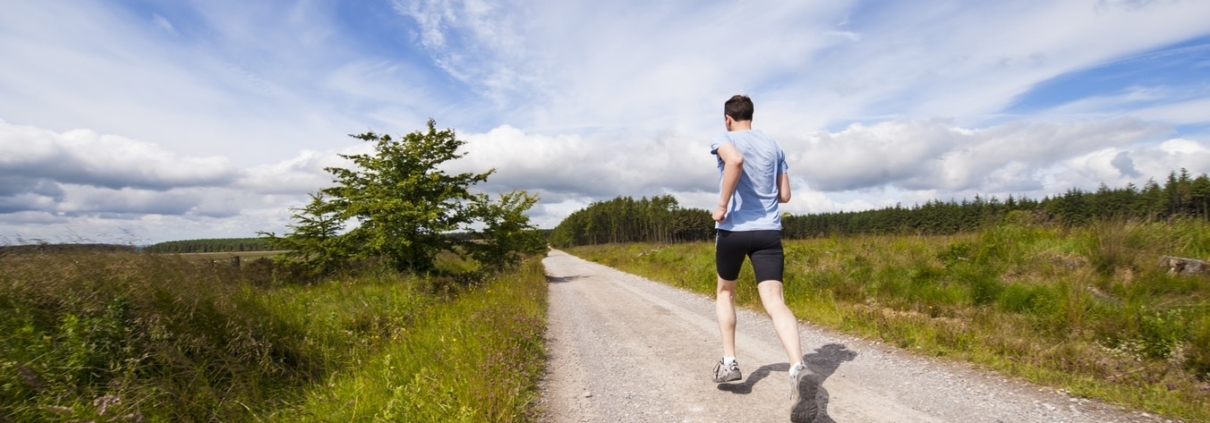How to recover from a marathon
Your post-race recovery plan
Cheers to training for a marathon!
Your season of grueling training will commence in getting past the finish line, the result of your hard work and discipline. While you revel in the idea of basking in the post-marathon afterglow – sweat, cramps, exhaustion and all – also take recovery into consideration
Everyone’s road to recovery is unique to the circumstances of their race, race condition, training regimen, health, and pace.
Despite these variables, there are tested methods that runners avow to. Follow these proven post-race recovery tips and you’ll be zooming off in a week
Walk it off
Tempting as it may be, don’t just drop down on the grass.
A 26.2-mile run is punishing your body, exerting undue stress to your muscles, heart, and lungs that just disappear once you’ve crossed the finish line, and in fact, it’s in post-race that you’ll feel the brunt of it.
Let your body ease out of marathon mode by walking around to gradually decrease heart rate so your blood flow returns to the resting state.
Walking around helps rid of the lactic acid that’s built up in your muscles through the course of the marathon, so walk around for 15 to 20 minutes before taking a rest.
Post-race ice baths
Completing a marathon is like putting your body through a meat grinder.
At the final leg of a marathon, the effects of muscle and joint damage starts to be felt – the buildup of lactic acid in the legs results in cramps and every step sends a painful jolt through your body. A post-race ice bath reduces muscle pain because the low temperature forces the blood vessels to narrow which gets rid of the acid build up and reduce swelling.
Don’t just jump into a tub of ice cubes though.
Ice bath:
- Fill a tub with enough water to envelop your lower body and submerge yourself.
- Add ice cubes gradually to the water so it’s less shocking to your system and more bearable.
- Soak in the tub for 5-10 minutes but the rule to abide by is the colder the water, the less time you spend in it.
- Finish the ice bath with a warm shower. The hot temperature dilates the blood vessels to increase blood flow and oxygen supply, causing a pumping action.
Ice massage: A pack of ice cubes over the strained muscles should do the trick.
Eat!
Your post-race chow should be a small snack to take in 300 calories from carbohydrates to maintain blood sugar levels, replenish muscle glycogen and protein to keep blood sugar levels.
Your diet after the marathon should comprise of protein-rich food like nuts, meat, and cheese to hasten the repair of muscle tissues, and while that list sounds drab, indulge yourself with chocolate milk which surprisingly has an optimal ratio of carbs and protein. Also, in the lieu of sports drinks and other fancy drinks, nothing hydrates better than water!
Water will help aid your body’s fast to recover, so drink up!
Recuperate
In the heat of things, many people swear that their first marathon will be their last, maybe you’ve been there too. The rush of finishing a marathon and seeing the fruit of a season of training can be addicting though, and the itch to start getting into a form may come soon, even sooner than your body can handle. The meat grinder metaphor exists for a reason and state of your body after a race should tell you why.
Give your body time to recover, and it’s not just the muscles that need R&R. Your kidneys, heart, circulatory system, your entire body is put through so much stress over the course of a marathon it’s not wise to get back out there when it’s just been wrung to a pulp.
Experts advise taking one day of rest for each mile raced or taking three to seven days of no running after a marathon.
After this period, you should take the time to test the waters by going into cross training or any activity that boost circulation and warms your muscles. An easy 30-minute run should clue you in on how far into recovery you are. When nothing hurts and it’s all good, slowly increment your running distance but stick to easy runs.
At the end of this period, try slipping into your regular running routine if you can do it. If all is well. You can go back running at your usual pace if you feel good. The key is listening to your body and giving it the time to repair itself.
Contact us today for sports chiropractor to help you recover from that marathon!




Leave a Reply
Want to join the discussion?Feel free to contribute!